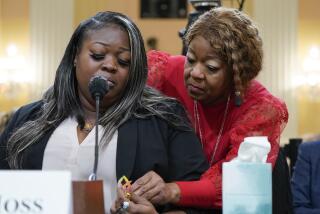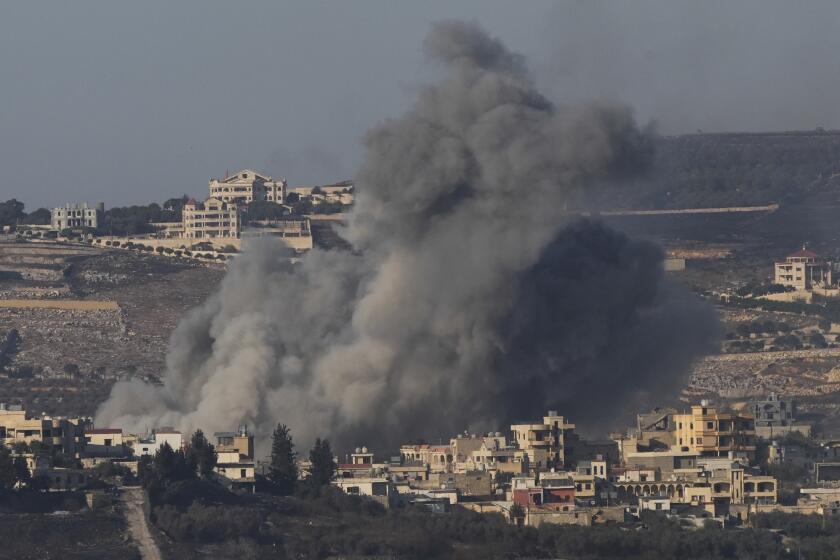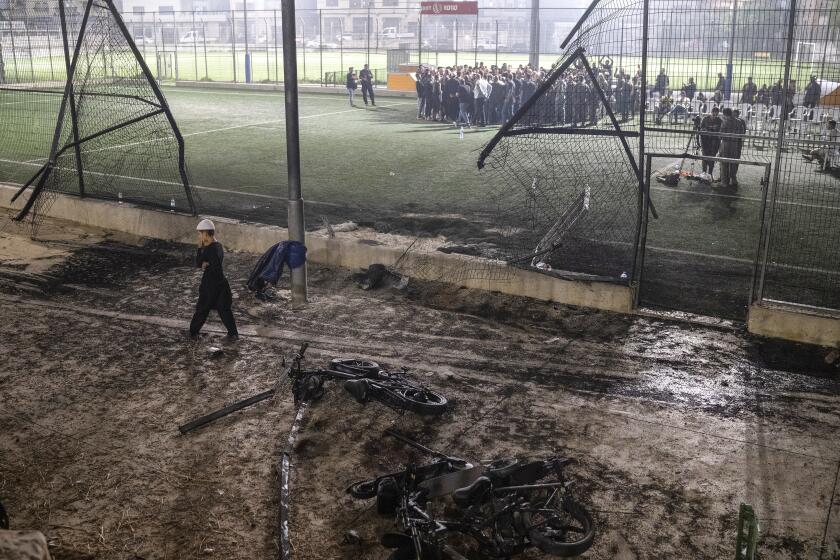One Election Down, One Big One to Go : Russia presidential vote will be key to its policies
The election that will most directly shape Russian policy in coming years--including its relations with the United States--was not the parliamentary vote of two weeks ago; it is the presidential contest scheduled for next June. The significance of next year’s vote lies in the fact that the 1993 constitution, largely crafted to meet President Boris Yeltsin’s ambitions, gives most state power to the office of the presidency, including control over the “basic direction of domestic and foreign policy.” Yeltsin will not be alone in seeking to hold that power.
The first serious candidate to declare was Alexander I. Lebed, a law-and-order retired army general who ranks high in opinion polls. He jumped in Thursday. And Mikhail S. Gorbachev, the last president of the Soviet Union, told Izvestia he too was thinking about a run for the presidency. But he’s long been out of the game.
YELTSIN WAITING: Other major prospects have held off from announcing, but the field is beginning to shape up. Yeltsin himself, after two recent heart attacks and with a feeble popularity rating, plans to wait until February before saying whether he will seek a second five-year term. Meanwhile, two figures at opposite ends of Russia’s political spectrum can be counted as all but certain candidates.
Gregory Zyuganov, as the leader of a revived Communist Party that will occupy more than one-third of the seats in the newly elected parliament, the Duma, probably will try to put the momen- tum of that victory behind a campaign to lead Russia. So far he has been careful to leave unclear just how far he would retreat from recent reformist policies. On the extreme right the madcap Vladimir Zhirinovsky, whose party lost ground in the Duma elections, seems sure to bring his bizarre political vision into the presidential arena.
Zhirinovsky is likely to have competition for the nationalist vote in the person of Lebed, who talks tough about attacking crime but is otherwise largely silent on key policy issues like economic reform. Though Lebed personally is strong in opinion polls, his party did not do well in this month’s election.
MOOD OF NOSTALGIA: Throughout its long history Russia has known little except authoritarian government, and many Russians today are openly nostalgic for a return to the imposed stability of strongman rule after the disruptive democratic experiment of recent years. For such Russians, including perhaps many in the military, Lebed could be seen as a respectable alternative to Zhirinovsky.
It’s of course far too early to write off the potential presidential candidacies of moderates like Prime Minister Viktor Chernomyrdin and Grigory Yavlinsky, the reform leader. But the current mood in Russia, as the Duma election underscored, is one of widespread popular dissatisfaction with the changes brought by Yeltsin era reforms, not a good sign for those identified with efforts to create an effective market economy and broad political liberalization.
More to Read
Sign up for Essential California
The most important California stories and recommendations in your inbox every morning.
You may occasionally receive promotional content from the Los Angeles Times.










